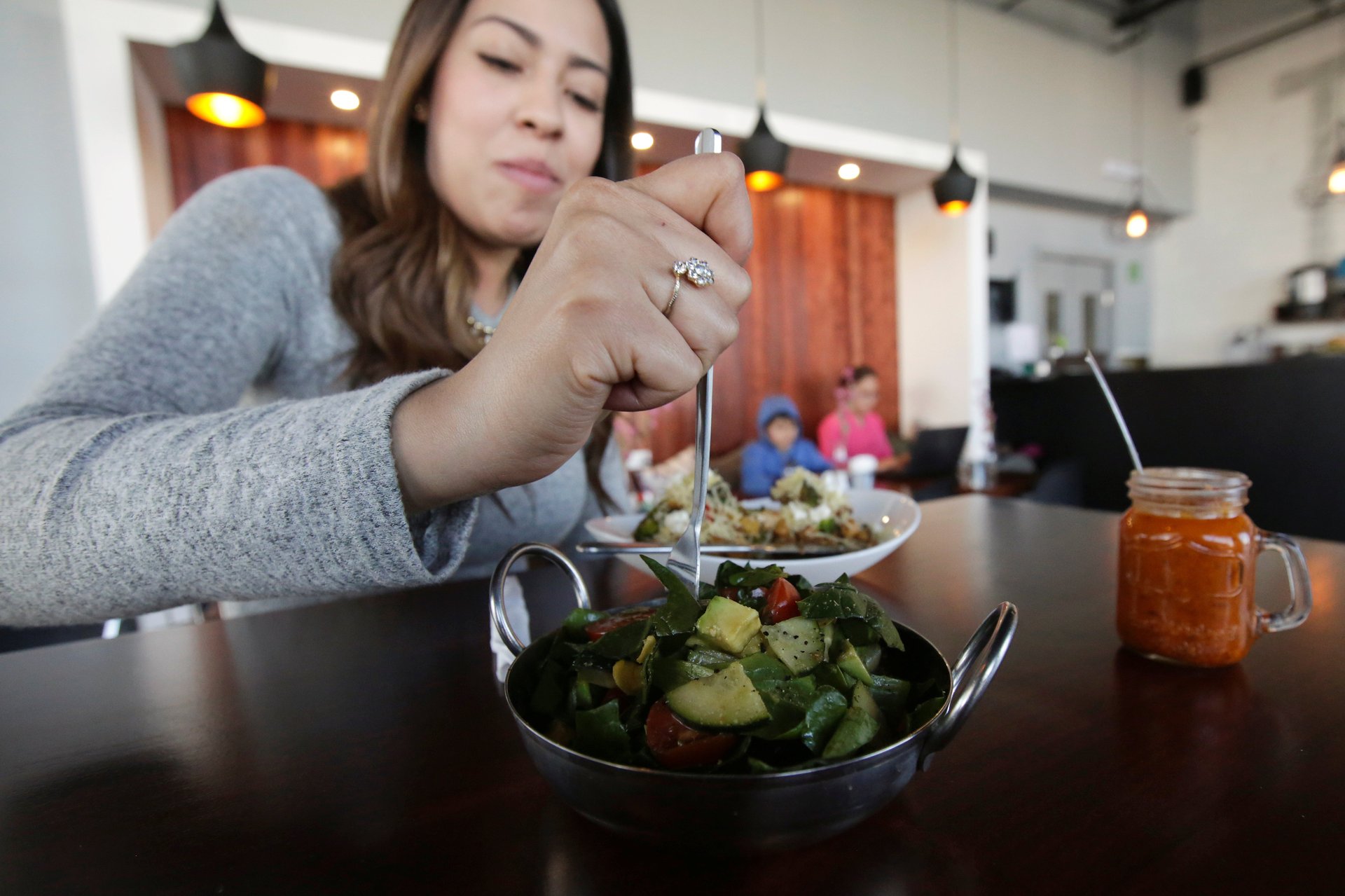The US shutdown underscores most food isn’t inspected for safety at all
Last year was a bad year for salad lovers, and the start of 2019 isn’t looking much brighter.


Last year was a bad year for salad lovers, and the start of 2019 isn’t looking much brighter.
Still reeling from massive food recalls connected to three E. coli outbreaks in 2018, romaine lettuce growers—along with the rest of the American produce industry—now face another looming problem. The government shutdown propagated by US president Donald Trump may wind up decreasing federal food-safety inspections if it continues to drag on.
That’s not great news, especially because of the bad rap romaine lettuce has gotten as a result of its recalls. Now 24 days into what’s become America’s longest-running government shutdown, Trump has furloughed some 40% of the US Food and Drug Administration’s workforce.
Shutdown protocol calls on the agency to continue supporting fee-based work like the approval of new medical products. It also is expected to respond to emergencies, review imports to determine potential health risks, and “address existing critical public health challenges, including drug shortages, and outbreaks related to foodborne illness and infectious diseases.”
As for food-safety inspections, as FDA administrator Scott Gottlieb explained on Twitter, some inspections have been postponed, but only a handful of the more than 8,400 that take place each year have so far been affected.
There are about 80,000 food facilities in the US but the FDA carries out about 160 routine food inspections in a given week. As food safety advocates have pointed out, the agency would need to do a lot more inspections to come close to covering everything.
Of the 8,400 facilities that typically get inspected, one-third are considered “high-risk.” They will continue to get attention, Gottlieb says. Other, lower-risk facilities (think cookie or cracker bakeries) will go unchecked.
So the notion that the shutdown is creating chaos in the food system would be incorrect. Still, fewer inspections is bad news for people who want more preventative work done by their government to keep consumers from falling ill because of food poisoning.
Routine inspections by the US Department of Agriculture, which mainly oversees the safety of meat, poultry, and eggs, will continue in spite of the shutdown. An estimated 61% of USDA employees—which include those in its Food Safety and Inspection Service—have been deemed “essential personnel.”